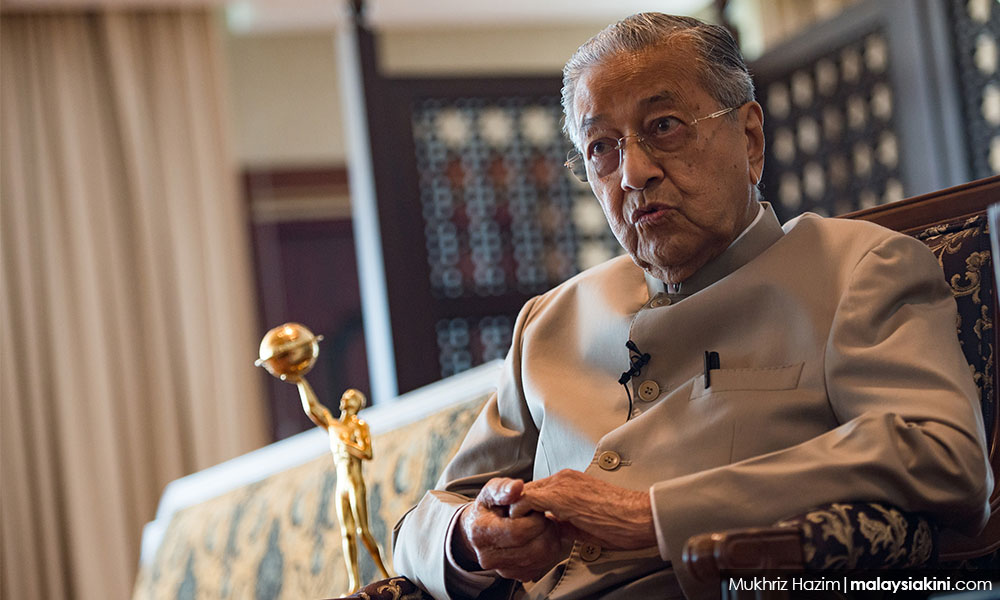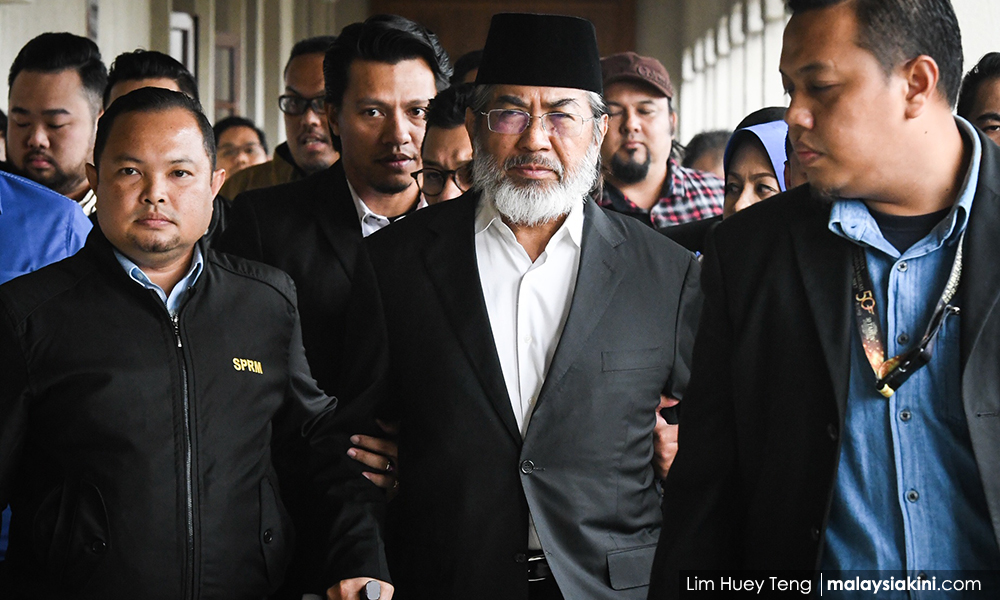Rotate the prime minister’s post every two years among leaders within the ruling coalition?
What a crazy and impossible proposal! This will never happen. The sceptics will surely shoot it down.
My response is: Why not? What is so wrong with rotating the prime minister’s post among party leaders in the governing coalition if it can change the political dynamics and in turn, the nation and people, for the better?
That is the new norm to me and if our political leaders are really sincere about sharing power among themselves and within their component parties, this is the way to go.
The rotation system deal is for real if agreed upon by the coalition partners in power. It should be established before entering the election as a team. It is cast in stone and demands concrete action, not mere words easily said and dishonoured, or as effortlessly changeable as the weather.
Remember Pakatan Harapan’s deal before GE14. All it takes to destroy it is for one dishonourable leader to pretend he didn’t hear the “two years” promise to step down as prime minister. No more of this nonsense, please!
Well, if the rotation system has been tried and tested in Sabah, why can’t it be implemented at the national level too?
If it was deemed necessary, practical, and would serve the people of Sabah, why is it not practical and good for the nation?
Two years too short?
In case you think two years as prime minister is too short to achieve anything, let me say this up straight. My top goal is to eradicate or prevent corruption - when a prime minister knows his time is up within 24 months, he is less likely to steal.
Better believe it! A fixed short term at the top will give a PM the jitters if he’s up to no good. So too his greedy boys (and girls) surrounding him or waiting impatiently outside his office or home, salivating for “projects”.
To me, a prime minister does not have to do much these days. Let me repeat in all seriousness - just don’t steal! That is top of my list - I want a prime minister to stay far far away from corruption.
The usual way of doing business - someone takes a cut of 20-30 percent out of every government contract is also less likely to take place. The giver and taker are aware the incoming prime minister will surely find out in no time.
That is a very simple reason why I think rotating the PM’s post is a good idea. There are others but for this article, I will just skim the surface with this all-important subject of graft in the corridors of power.
Why, didn’t all our political parties declare they would be hell-bent on fighting corruption if elected into power?

That is as recent as a declaration by Dr Mahathir Mohamad and his Pejuang party. He has declared that Pejuang’s key mission is to fight corruption and that the party will not work with those who are known to be corrupt.
Oh, how I love to hear such noble words from our former prime minister of 22 years and 22 months. If only it was all squeaky clean when the honourable Mahathir was prime minister from 1981 to 2003.
Or we surely wouldn’t be in this hell-hole today if the second-time PM of 22 months was more willing to share power as promised and did not abruptly resign in February last year?
Well, who established the rotation of the chief minister’s post in Sabah in 1994? Answer: Who else but Mahathir.
Why did Mahathir rotate the CM’s post? As he had said it then: “The chief minister’s post is too powerful.”
To Mahathir, the Sabah CM’s post was a very powerful one and had to be rotated. Then, what about the PM’s post? Isn’t it equally powerful or even more powerful? Why not rotate it as well?
Talk of double standards.
Rise of Musa Aman
In 1994, Mahathir was such a powerful PM that he could overturn the electoral victory of Chief Minister Joseph Pairin Kitingan and PBS, enticed crossovers from the party, and installed BN as the Sabah government.
This was the start of the two-year rotation of the CM’s post. Those who became chief minister were Sankaran Dandai, Salleh Said Keruak, Yong Teck Lee, Bernard Dompok, Osu Sukam, Chong Kah Kiat, and Musa Aman.
From Sankaran starting the rotation in 1994 to Chong ending it in 2004, everything was quiet and smooth in Sabah. It was true - corruption was practically unheard of.
What happened after the rotation was scrapped in 2004 was a disaster. Musa Aman was allowed a free reign and who is surprised he had to face multiple graft and money laundering charges after BN was defeated in 2018?

There must be good reasons why many other nations set a limit for the term of their heads of government. Examples are the US president on two four-year terms and the Philippines president on a single six-year term.
Today, there are too many aspirants for prime minister. Top on the list are Anwar Ibrahim, Mohamad Hasan, Mohd Shafie Apdal, Tengku Razaleigh Hamzah, Ahmad Zahid Hamidi, Hishammuddin Hussein, Mohamad Sabu, even Dr Mahathir Mohamad, and many more.
Over the next 10 years, I wouldn’t mind seeing Anwar, Mat Hasan, Shafie, Hisham, and Mat Sabu as prime ministers every two years.
After them, the second echelon of leaders could have their turn. I do not see these party elders giving way to the younger leaders just yet.
It would also be a good idea to have a Chinese and an Indian as second deputy prime minister in any future government.
In this column on April 4, I wrote “we need a saviour who is a unifier of all who live under the Malaysian sun - one who will unite the people justly, fairly, and inclusively”.
My expectations are too high perhaps but I do not see anything extraordinary in these five PM candidates. I expect them to be “so so” leaders, not of the “saviour” mould I’m hoping for.
Honestly, I wish I'm dead wrong on this one. - Mkini
FRANCIS PAUL SIAH is the author of ‘Hijack in Malaysia: The Fall of Pakatan Harapan’. Obtain autographed copies from sirsiah@gmail.com.
The views expressed here are those of the author/contributor and do not necessarily represent the views of MMKtT/




No comments:
Post a Comment
Note: Only a member of this blog may post a comment.